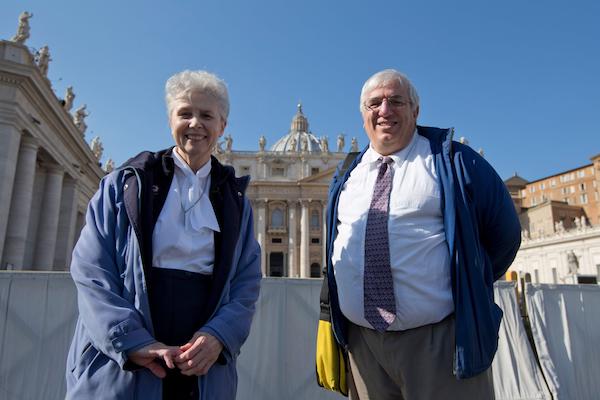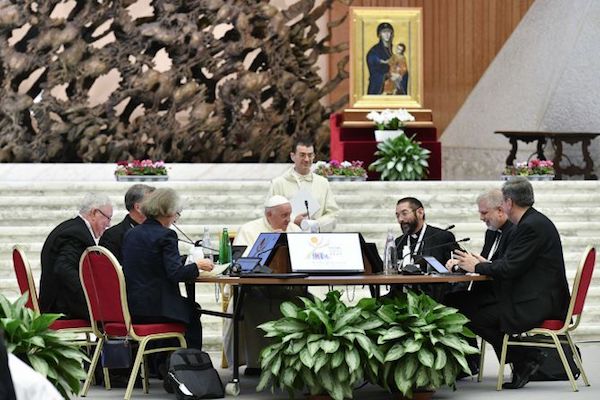The Synod on Synodality published a “Letter to the People of God” on Wednesday, to accompany the synthesis document and provide direction for the next phase of the universal synod.
The letter described the delegates’ “unprecedented experience” of synodality, with its “significant room for silence to foster mutual listening and a desire for communion”.
“We hope that the months leading to the second session in October 2024 will allow everyone to participate concretely in the dynamism of missionary communion indicated by the word ‘synod’,” it said, calling for a renewed listening process “starting with the poorest”.
It specified the voices of victims of racism, particularly indigenous peoples, and victims of clerical abuse.
While emphasising the need to listen to the laity and “to welcome the voice of those who want to be involved in lay ministries and to participate in discernment and decision-making structure”, the letter said that synodality required the full participation of priests and religious.
“To progress further in synodal discernment, the Church particularly needs to gather even more the words and experience of the ordained ministers,” it said, while also recognising that the Holy Spirit is “present and operative” in “those who do not share the faith but are seeking the truth”.
Delegates applauded a draft of the letter read out on Monday, as they entered the final week of discussions after a Mass where Cardinal Charles Maung Bo described the synod as “a long march of hope for all humanity”.
The previous week saw debate on the nature of the synod, as it turned from potentially divisive subjects such as LGBTQ ministry and the role of women to the question of authority.
The Vatican reported that sessions on “co-responsibility in mission” early last week considered the ordination of women to the diaconate and priesthood, but insisted that this did not dominate discussion.
It said that delegates focused on the importance of the parish – emphasising that it “is not a service station but a place of communion” – and the relationship between clergy and laity within it, before discussing the ministry of bishops and the need for them to act in a “synodal style”.
This was followed by three days considering “the service of authority and the exercise of responsibility”, which the relator-general Cardinal Jean-Claude Hollerich said would produce “small but sensitive changes” that would be “perceivable” and important to the Church outside the synod hall.
“These are delicate issues, which require careful discernment,” he said. “They are delicate because they touch the concrete life of the Church and also the growth dynamism of the tradition: a wrong discernment could sever it, or freeze it.”
Preaching at a Mass for delegates ahead of these discussions, the Archbishop of Vilnius Gintaras Grušas said: “Synodality, including its structures and meetings, must be at the service of the Church’s mission of evangelisation and not become an end in itself.”
This anticipated a series of briefings by delegates on the synod’s reforms. On 19 October, Cardinal Michael Czerny said that bringing the laity into governance in line with synodality posed “no danger to the nature of the Church” since lay people already held office.
Speaking alongside him, Archbishop Dabula Anthony Mpako of Pretoria said that “synodality must co-exist with the hierarchical structure of the Church”.
In an interview with EWTN on 20 October, Archbishop Anthony Fisher of Sydney said that not synod proposal “radically at odds” with the Gospel could be from the Holy Spirit, as the Spirit “is only ever going to be saying things that are consistent with what Christ has revealed to us in the apostolic tradition”.
However, in a briefing the next day Bishop Franz-Josef Overbeck of Essen said that the Church must read the “signs of the times” and that Germany’s controversial Synodal Way was a response to a “post-secular” society and the need for effective decentralisation in the Church.



 Loading ...
Loading ...